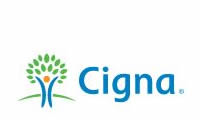Healthcare in South Africa

Public Healthcare
Most South Africans consider their public healthcare system a disgrace. In theory, everyone has access to state hospitals and health centers for emergencies and routine doctor’s visits as well as the dispensation of medicine, all for free or a relatively small fee. But due to understaffing, a shortage of skills, a lack of supplies, and frequent strikes, service is often bad and unreliable. Long queues in front of those health centers designed to serve the majority of the population can often be seen snaking around entire blocks, with people having to take days off work for a simple doctor’s visit. You might have gotten up at four in the morning to secure a spot in line for a prescription renewal of your blood pressure tablets, only to be told by 3 pm that the clinic is now closing and that you’ll have to come back tomorrow.
Private Healthcare
For expats moving to South Africa this means that you will want to visit private hospitals and doctors for your medical needs, much like South Africans of middle to upper incomes do. If you don’t already have a health insurance policy from your home country that will cover your medical care in South Africa, you will have to sign up for Medical Aid with a provider such as Discovery, Bonitas, or Medshield (click here for a comparison of medical aid providers). Please note that some plans provide emergency coverage only, and other plans may require that certain claims be authorized beforehand, so it is a good idea to carefully study and compare what is on offer.
The good news is that private healthcare in South Africa is excellent and affordable. It is by far the most sought after on the African continent and on par or superior to many European countries. Johannesburg in particular has become a medical tourism destination in its own right both for medical and cosmetic treatment, because the care is excellent and the prices are very competitive in a global comparison. A routine doctor’s visit can start at ZAR250 and even operations often cost well below what you would pay in Europe or the United States. Excellent dental and orthodontic care is also available.
The major private healthcare providers are Life Healthcare, Netcare, and Medi-Clinic, with state of the art hospitals in all the major population centers. There is no shortage of specialists for every eventuality and waiting times for appointments as well as in the emergency rooms are generally negligible.
Similarly to hospitals, emergency services are also privatized. There are government services available in the various provinces, but for the best response times and nationwide service, expats are advised to use one of the private ambulance providers (ER 24 and Netcare 911).
Immunizations and Diseases
No immunizations beyond the routine ones (hepatitis B, DTP, MMR, polio) are required when entering South Africa (an exception is the yellow fever immunization for those entering South Africa from a yellow fever area). It is a good idea for expats to visit a local doctor and have a number on your emergency list to find out what else might be recommended (such as hepatitis A), especially once you are settled and looking to travel beyond South Africa. Angola, Tanzania, Congo, and Kenya are all yellow fever areas and a certificate will be required to re-enter South Africa after traveling there.
Malaria, contrary to what most people think, is essentially non-existent in South Africa. There is a small area of the country along the coast bordering Mozambique and in Kruger Park where taking malaria prophylaxis is advisable, especially in the higher-risk months from October to April. The most commonly recommended prophylaxis is Malanil by Glaxo Smith-Kline, also called Malarone in the U.S. Outside of these areas, South Africa is malaria-free year-round.
Another disease to be aware of is tick bite fever. It is very common in South Africa, particularly in summer. Please note that tick bite fever is not the same as lyme disease, another tick-borne disease, which can be fatal but is not endemic to South Africa. Tick bite fever, which can be quite unpleasant, is easily curable with a simple course of antibiotics and local doctors are very skilled at identifying it. You should note that pets (mainly cats and dogs) can also be infected with tick bit fever, making regular flea and tick treatments a must.
When traveling to other parts of Africa or for prolonged stays in rural areas within the country, expats should be aware of typhoid fever, cholera (transmitted via contaminated food/water), and rabies, and take the necessary precautions. The tap water in South Africa is absolutely safe to drink.
HIV/AIDS, of course, is still a very large problem in South Africa, as in most other African countries, coupled with the high incidence of tuberculosis. The last few years have seen much success in limiting the spread of HIV once its risks were finally acknowledged by the government, through the use of now more widely available anti-retroviral treatments. For expats, HIV poses a very small risk if basic precautions are taken and your children are educated on how it is transmitted. Many expats routinely volunteer their time in orphanages for HIV positive children and this is not seen as a risk factor. It is against the law to ask prospective employees (domestic workers in the case of expats) about their HIV status, but it is permitted to have tuberculosis screenings done, which is advisable for expats with small children (TB screenings are routinely performed by maid referral services).
The South African blood supply is considered to be very safe so that expats won’t bear any additional risks of contamination when going to the hospital. The bigger risk is being taken to a government hospital after losing consciousness in an accident, so it is advisable carrying an ID or driver’s license with you at all times to identify you, which will generally satisfy admissions requirements to a private hospital.
By Sine Thieme, an American repat just returned from a three-year assignment in Johannesburg with her husband an four children, where she loved the weather, the people, going on safari, and the fact that you never quite knew when exactly 'just now' would be.
- South Africa: Expat in JHB looking for other SA expats for PhD
- South Africa: EasyExpat.com is looking for networkers/helpers for...
- South Africa: EasyExpat.com recherche des animateurs pour notre...
- South Africa: Les nouveaux expats en Afrique du Sud se présentent
- South Africa: New Members in South Africa: Welcome!
- My Life Abroad -
A selection of expat stories

"A fun compulsive read!"
J. Matcham, Amazon
"I strongly advise people ready to live abroad to read this book!"
Patrice, Amazon

 Guide to the European Health Insurance Card
Guide to the European Health Insurance Card  Making a Plan for an Emergency Back Home
Making a Plan for an Emergency Back Home APRIL Travel Insurance
APRIL Travel Insurance Cigna Global
Cigna Global William Russell
William Russell